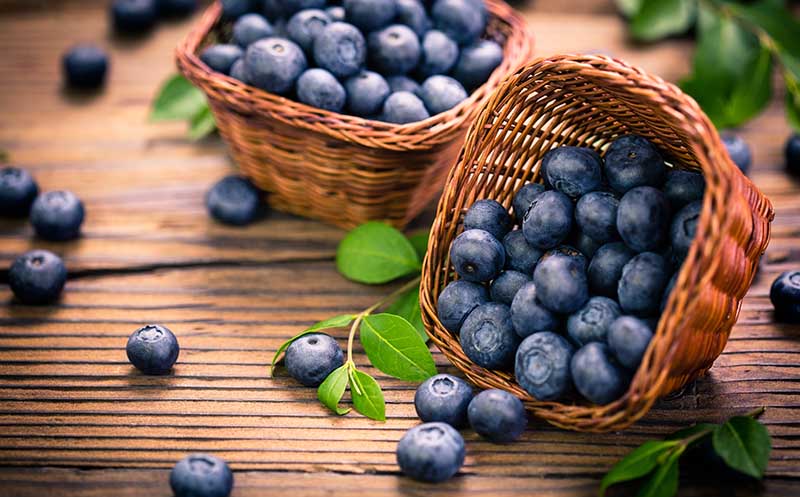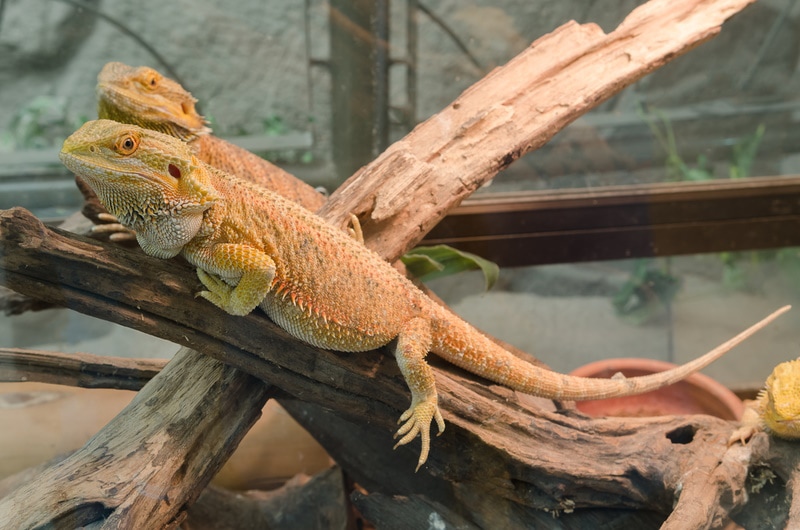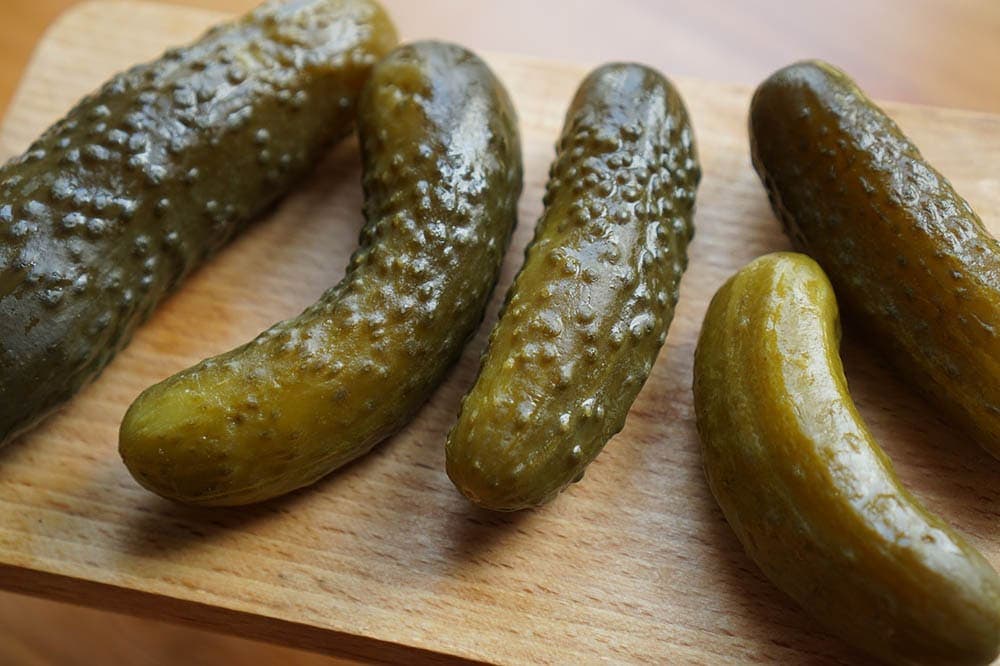Can Bearded Dragons Eat Beetles? Vet-Approved Feeding Facts
Updated on
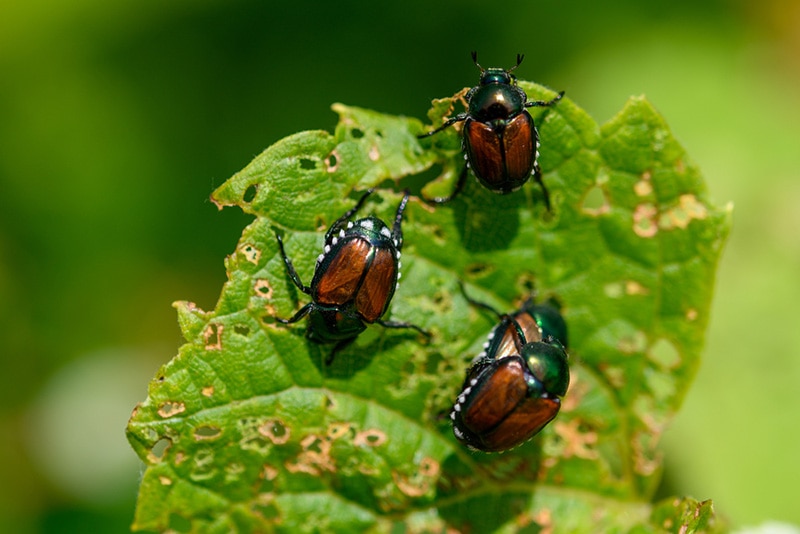
Bearded dragons are omnivores that as adults need a diet consisting primarily of vegetables with some insect protein. Most lizards that eat invertebrates will eat various insects like crickets, worms, and larvae. Some omnivores will also eat spiders, earthworms, and beetles. However, just because a bearded dragon will eat some of these insects doesn’t mean they’re necessarily the best or most nutritious option.
Beetles aren’t an optimal insect to feed your beardie as they aren’t a great source of nutrition and can be challenging to digest. Read on to learn more.
Why Shouldn’t Bearded Dragons Eat Beetles?
There are countless beetle species out there, and while some of them will be an okay snack to offer your beardie occasionally, not all species will be safe.
Beetles that are too large or hard will be difficult for your pet to eat and digest. Some species have uncrushable exoskeletons so strong they can survive being run over by a vehicle. We’re sure you can imagine how impossible it would be for your beardie to try to eat such an insect.
Of course, not all beetles are virtually indestructible. The darkling beetle is the most common species you may run into as a bearded dragon owner. Let’s look a little more closely at this type of beetle.
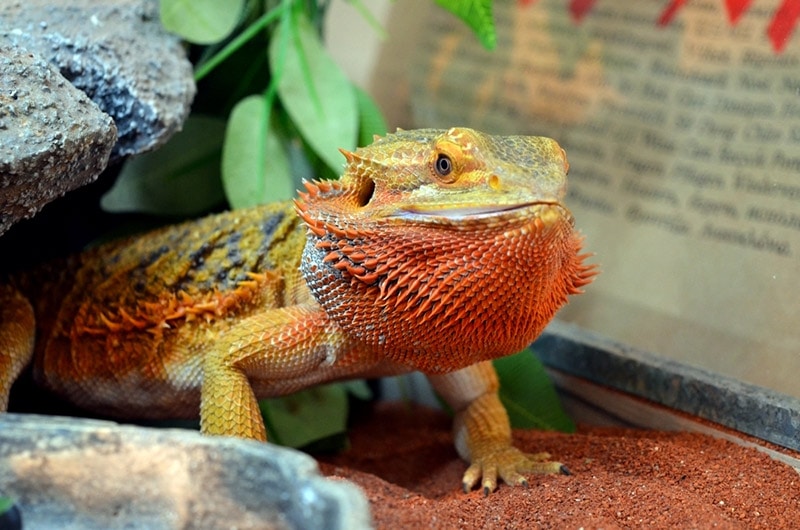
What Are Darkling Beetles?
Darkling beetle refers to members of the beetle family Tenebrionidae. There are over 20,000 species in this family, so when you hear the term “darkling beetle”, it could be about one of over 20,000 insects.
Chances are you’re familiar with the larvae version of two species of darkling beetle. Mealworms and superworms are darkling beetles in the larval form. As you’ll find out below, neither of these worms are optimal as staple insects but are okay as an occasional treat. But what about their beetle form? Are darkling beetles okay for your beardie to eat?
While they’re not toxic, they aren’t nutrient-dense, so they’re not a great bug to offer too often. They have a crunchiness your pet may be attracted to and do offer some benefits, such as protein. They are lower in fat than mealworms and superworms but the fiber content in the exoskeleton can be problematic. It may lead to a build-up of chitin in your beardie’s gut, leading to digestive issues or impactions.
All things considered, darkling beetles can be fed occasionally as a snack if your beardie likes them, though most don’t.
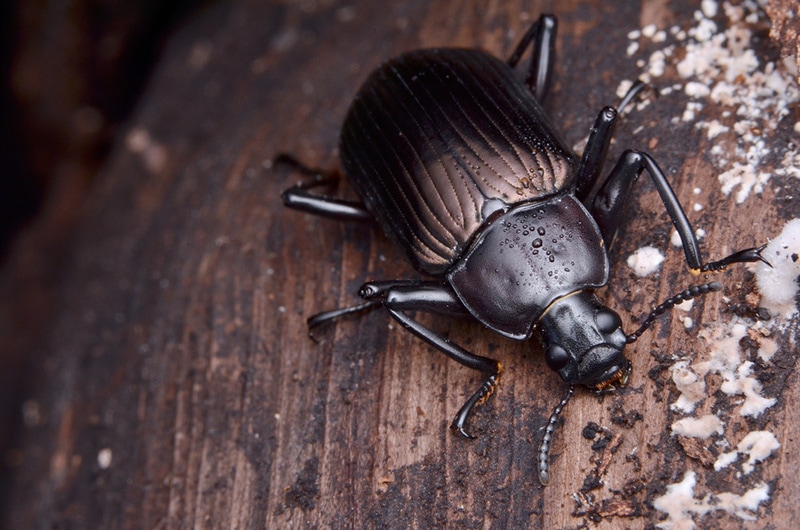
What About Wild Caught Beetles?
As tempting as it may be to try to save money on insects by grabbing them from your backyard, this is not recommended. Wild bugs may have been exposed to pesticides or carry parasites that they can expose your pet to. Additionally, you have no control over what the wild bugs ate before being fed to your dragon. Remember, what your feeders eat, your beardie will eat. This is why gut loading is so important. Since you don’t know what the wild bugs ate, you could be inadvertently poisoning your beardie or exposing him to potentially harmful parasites.
The best insects are farm-raised ones with controlled living conditions and diets.
Can Baby Bearded Dragons Eat Beetles?
While beetles aren’t recommended for your adult beardie other than as a very occasional treat and only if your reptile loves them, you must steer clear of them if your pet is still a baby.
Baby bearded dragons have very delicate digestive systems. Since beetles are notoriously difficult to digest, keeping them far away from your baby and juvenile dragons is best. In fact, most sources don’t even recommend feeding young beardies mealworms or superworms as they’re too fatty and hard to digest.
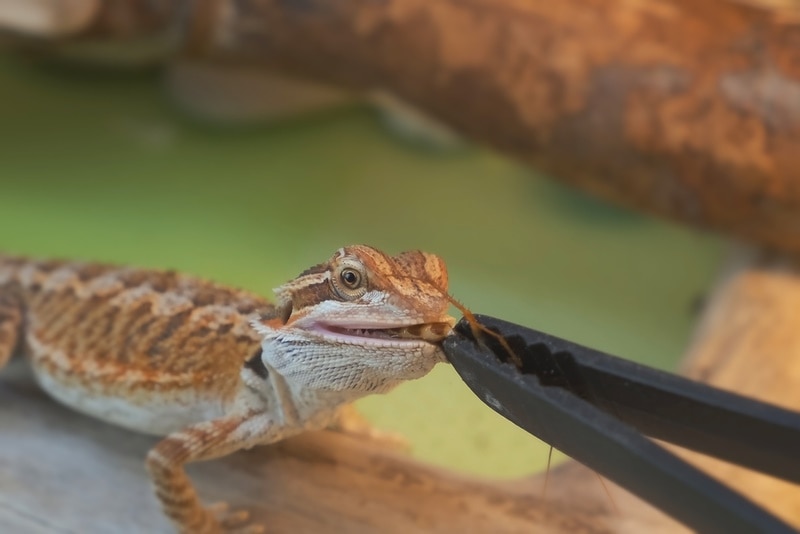
What Insects Are Best for Bearded Dragons?
The best feeder insects for beardies include:
- Black soldier fly larvae
- Crickets
- Dubia roaches
- Discoid roaches
- Hornworms
- Silkworms
The feeder insects you offer your beardie should be gut loaded at least a full day prior to feeding. Gut loading is the act of strategically feeding your reptile’s live food before you give it to your pet to eat. To gut load, you will provide your feeder insects with fruits, vegetables, or a commercial product created specifically for gut loading. Doing so ensures your beardie gets the most nutritional bang from each feeding.
The best protein sources to offer as treats include:
- Superworms
- Butterworms
- Waxworms
- Pinky mice (once a month only)
 Final Thoughts
Final Thoughts
Beetles shouldn’t be a regular part of your bearded dragon’s diet. Your reptile needs more nutrient-dense insects as staples. However, if your beardie loves darkling beetles, they can be offered rarely as a special treat. Remember, they provide very little nutritional benefit, and their tough exterior can make them challenging for your pet to digest.
See also:
- Can Bearded Dragons Eat Edamame? Vet-Reviewed Facts & Tips
- Can Bearded Dragons Eat Radish? Vet-Approved Pros, Cons & FAQ
Featured Image Credit: Conrad Barrington,Shutterstock


